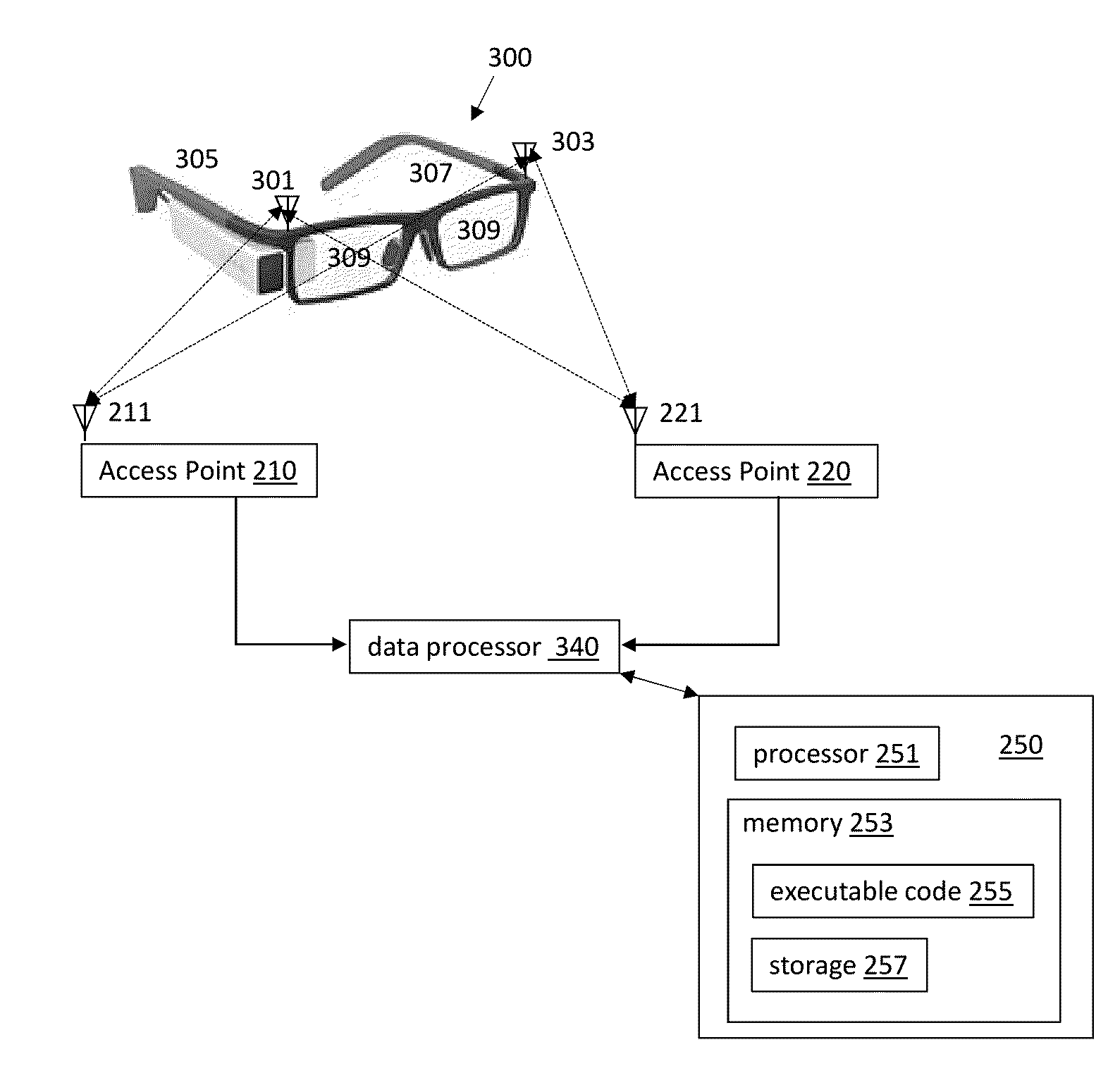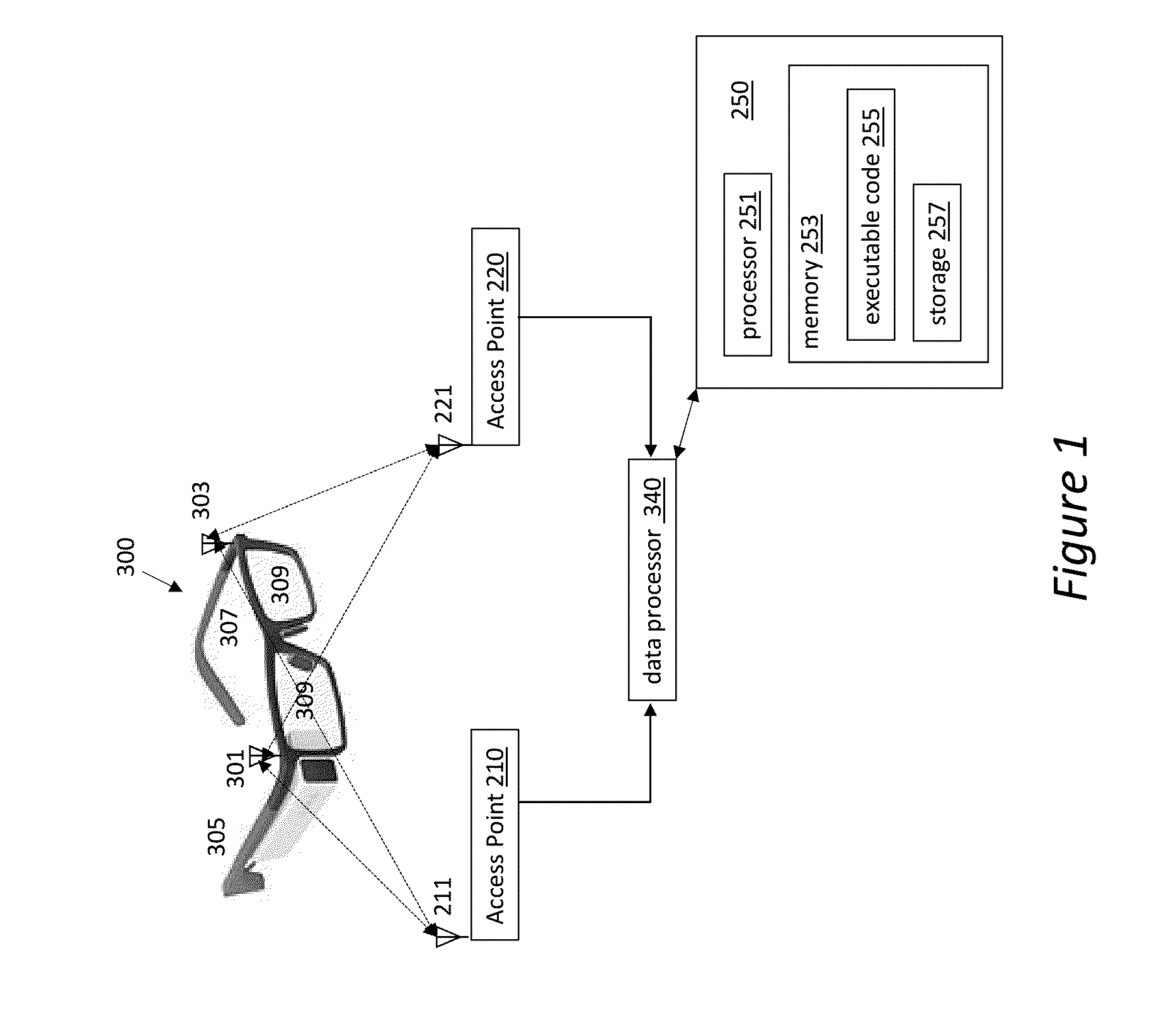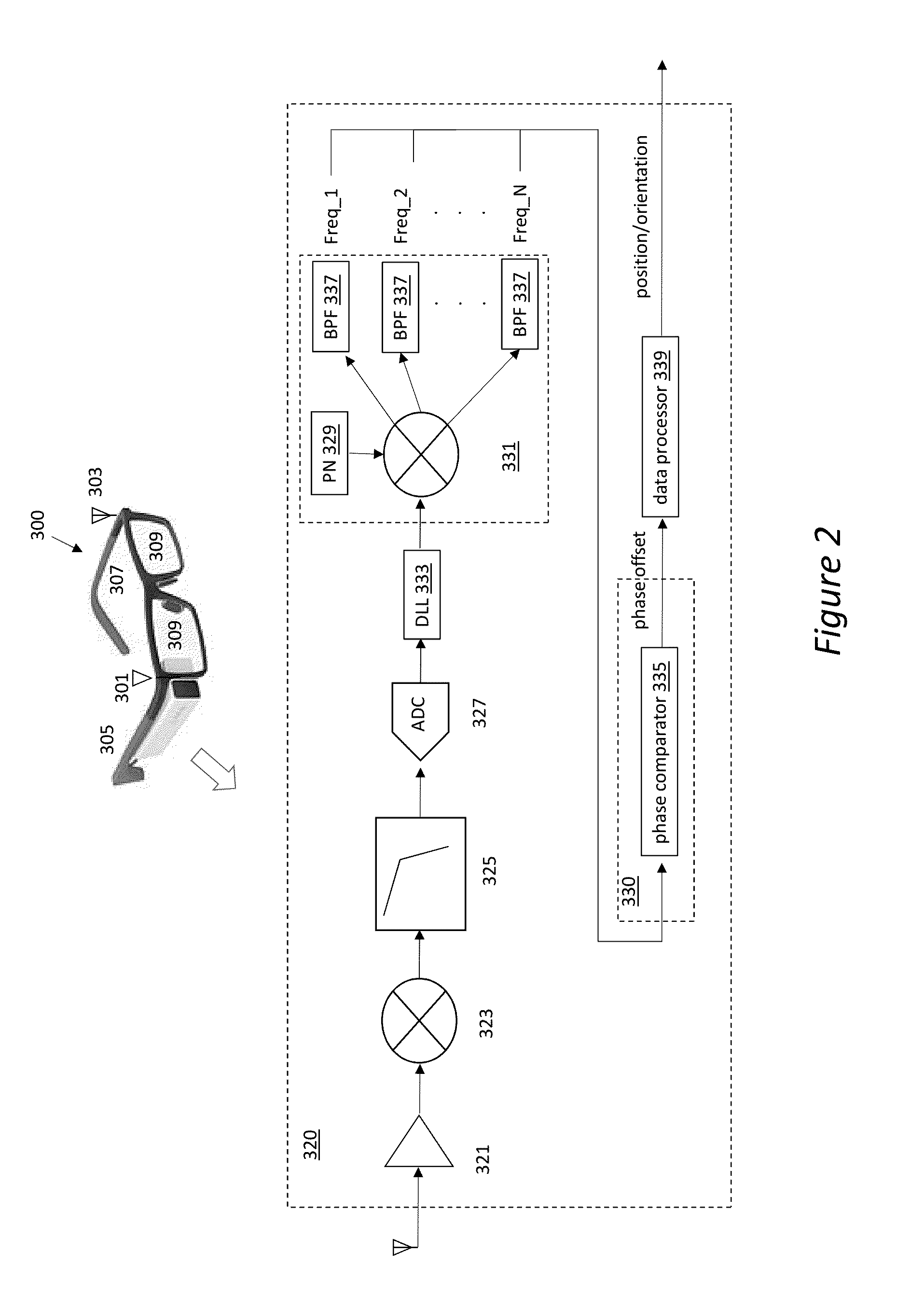Accurate geographic tracking of mobile devices
a mobile device and accurate technology, applied in the field of accurate geographic tracking of mobile devices, can solve the problems of not providing the high level of location accuracy necessary in many modern applications, gps systems that do not work as well indoors, and gps signals that do not provide accuracy to five inches or less, etc., to achieve accurate tracking of relative three-dimensional positions, high position accuracy, and operation effective for users
- Summary
- Abstract
- Description
- Claims
- Application Information
AI Technical Summary
Benefits of technology
Problems solved by technology
Method used
Image
Examples
first embodiment
[0077]In the embodiment shown in FIG. 4, multifrequency RF signals and location information are sent from an Access Point 210 (as described above) and a stationary mobile transmitter 230 (such as a cell phone). The HMD 300 uses the phase difference of arrival relationships from the multifrequency signals received from both the Access Point 210 and the mobile transmitters 230, 240 to determine the locations of HMD antennae 301, 303. In this embodiment, the mobile device transmitter 230 acts much like the second Access Point. More specifically stated, once the Mobile Device 230 location is identified accurately, it transmits multifrequency RF signals and its location to the HMD 300. The distance information from the HMD 300 to the Mobile Devices 230, 240 and Access Point 210 are used to accurately determine the HMD's 300 relative position. Adding the know position of stationary mobile transmitter 230 to the positions relative to mobile device 230 results in absolute positions.
[0078]Th...
PUM
 Login to View More
Login to View More Abstract
Description
Claims
Application Information
 Login to View More
Login to View More - R&D
- Intellectual Property
- Life Sciences
- Materials
- Tech Scout
- Unparalleled Data Quality
- Higher Quality Content
- 60% Fewer Hallucinations
Browse by: Latest US Patents, China's latest patents, Technical Efficacy Thesaurus, Application Domain, Technology Topic, Popular Technical Reports.
© 2025 PatSnap. All rights reserved.Legal|Privacy policy|Modern Slavery Act Transparency Statement|Sitemap|About US| Contact US: help@patsnap.com



